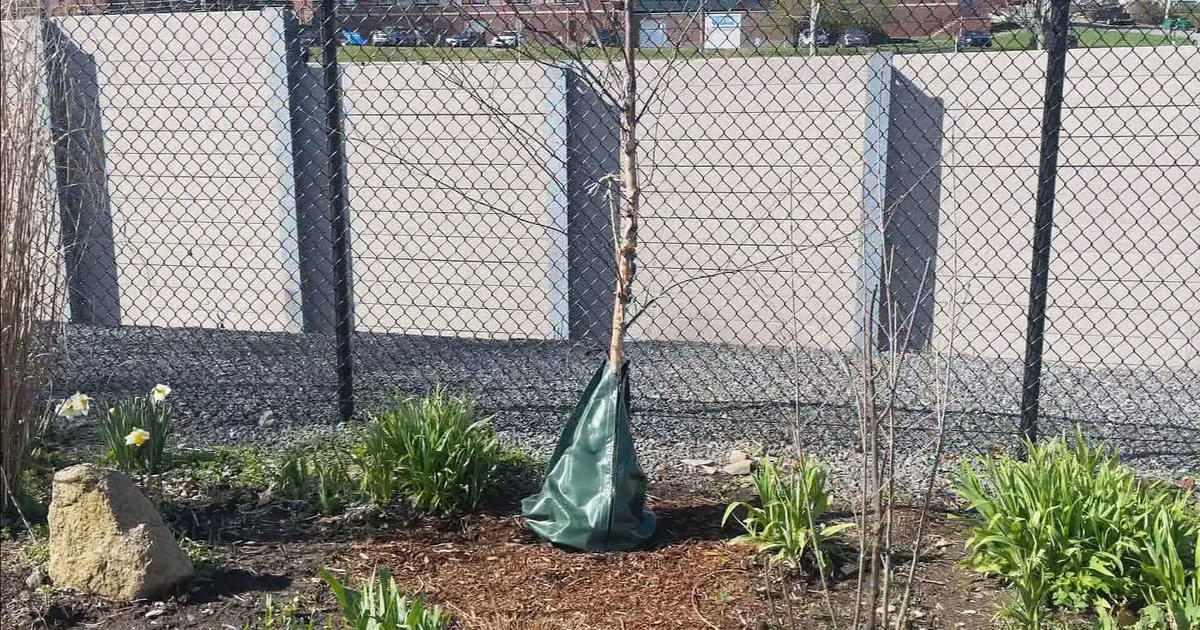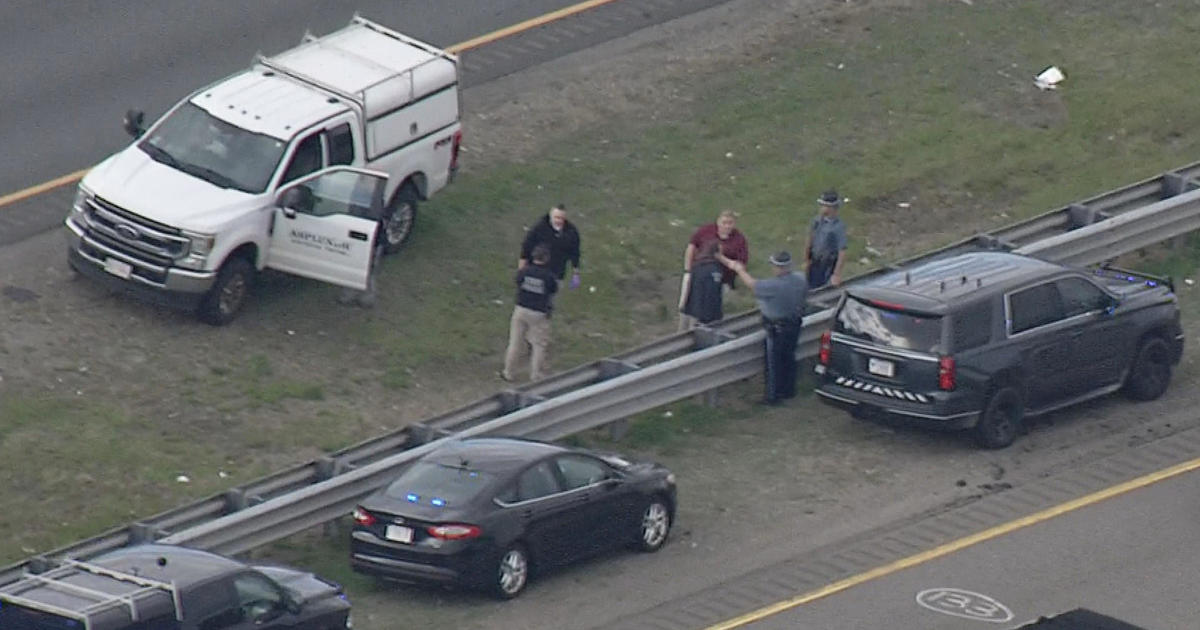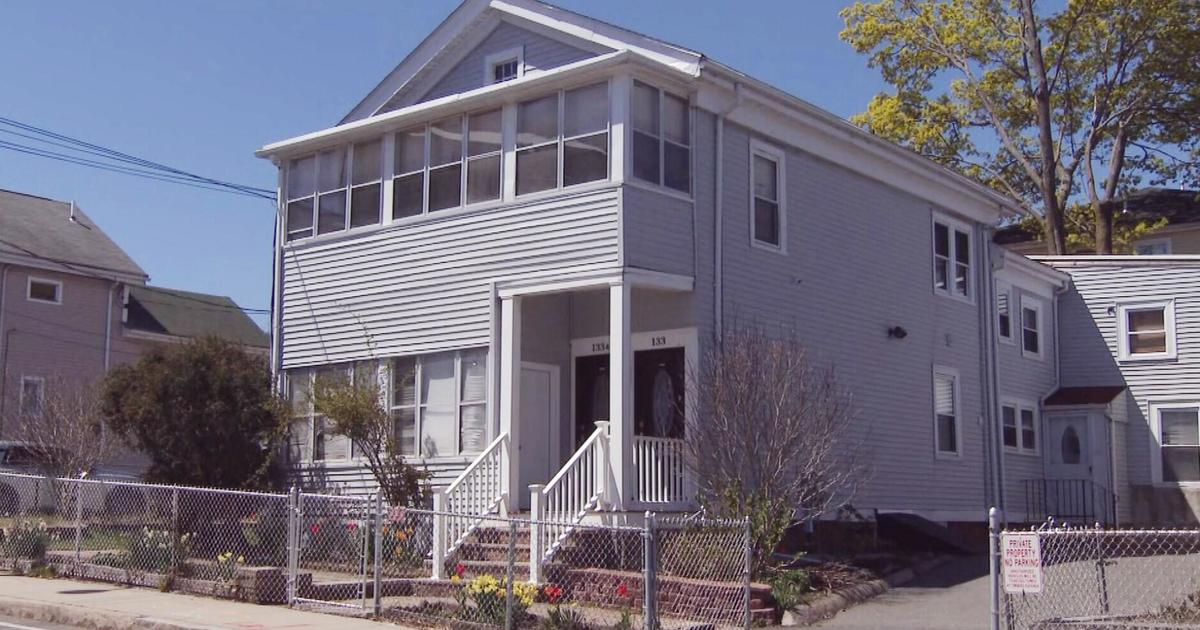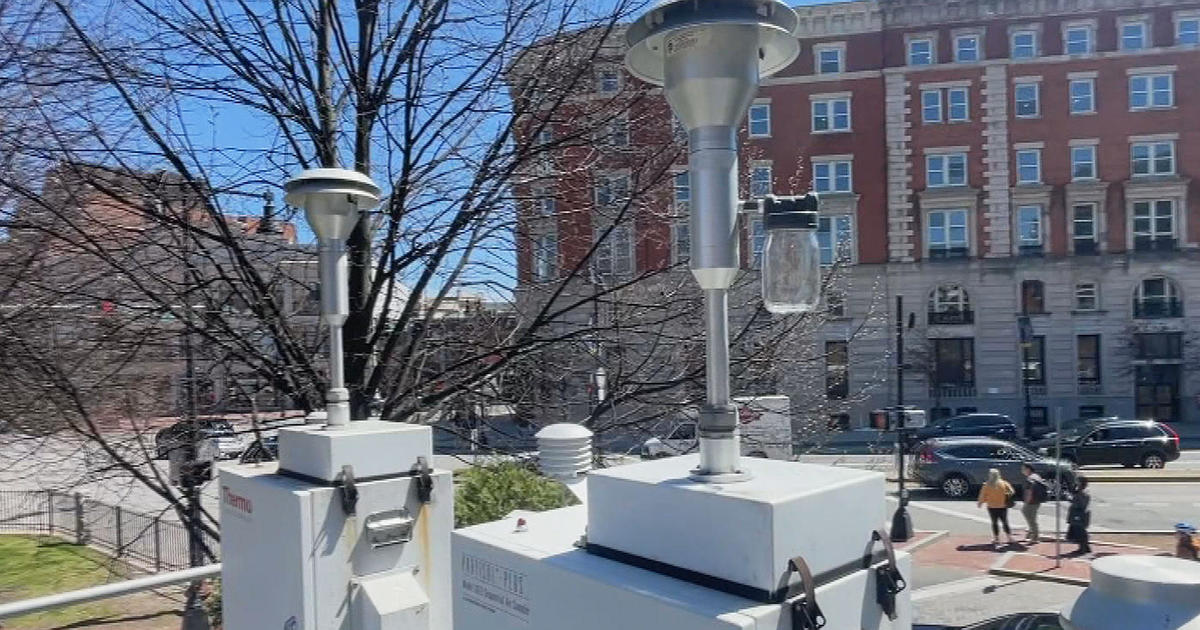A Day After Irene, Mass. Assesses Damage
GREENFIELD (AP) -- Rivers that overflowed their banks in Massachusetts because of Tropical Storm Irene washed out roads, swamped cornfields and dislodged a covered bridge, Gov. Deval Patrick said Monday after a tour of the hard-hit area.
"What I saw, from both the ground and the air, was extraordinary flooding. Three rivers have loosed their banks and the waters have flooded farmland and residential communities," Patrick said.
State police said a man leaving his home early Monday in Southbridge was electrocuted when he apparently touched an aluminum railing on his front porch that had become electrified by a high-tension line that landed on his home after being knocked down by a falling tree.
WBZ-TV's Jim Armstrong reports from Westport
Richard Gorgone, a 52-year-old public works employee in the town 50 miles southwest of Boston, was the first known death in Massachusetts related to Irene.
More than 400,000 customers in the state remained without electricity at midday Monday. Patrick said he hoped most would be reconnected by the end of the day, but it could be several days before all are restored.
In Greenfield in rural Franklin County, lifelong residents Will and Marion Bender could only peek in from outside the apartment they were forced to flee Sunday when the swollen Green River rushed down a hill and quickly flooded six units of their building.
"I'm hoping we can save some of it, that's all," said Marion Bender, 59, as she and her husband looked at damage that included mud-caked floors, doors ripped off closets and an overturned bed.
"We have to start all over again."
Chris Arena could only watch as water rose Sunday at the popular Green River Swimming and Recreation Area, reaching the top of a 4-foot-high fence.
"It was pretty devastating," Arena said. "You couldn't see anything under the water."
Patrick said he also saw flooded farms and a flooded golf course during his tour, and he said a covered bridge connecting Greenfield to the neighboring town of Leyden had been washed out, carving out a new channel for the Green River and jeopardizing one of three sources of drinking water for Greenfield.
A stretch of heavily traveled Interstate 91 between Greenfield and Sunderland was closed Sunday when rising waters from the Deerfield River threatened the integrity of a highway bridge. The northbound lanes were reopened Monday.
On Route 2A West in Shelburne Falls, police closed the iron bridge that spans the Deerfield -- roiling brown and white Monday with flotsam in the water -- cutting the town in half.
Kenny Patel, owner of the Keystone Market in Shelburne Falls, estimated Monday he has lost about $10,000 of perishable dairy products and refrigerated items that had to be thrown out after the store was without power for about 20 hours.
In Colrain, the North River overflowed and punched a hole in the bridge that spans it on Route 112, which was blocked off.
Josh Flysz, of Colrain, was using a tractor to dig out a 1968 Chevelle submerged up to the hood in mud and water.
"It's unbelievable. I've never seen anything like it before," he said. "It's not anywhere near as bad now as it was last night."
While serious, the flooding in Massachusetts was not as severe as in neighboring Vermont, where Gov. Peter Shumlin called it the worst in the state in a century.
Matthew Belk, a National Weather Service meteorologist, said most major rivers in western Massachusetts had crested and returned to their banks, but there remained concern about the Connecticut River, New England's longest, as runoff from Irene flowed south. A flood warning remained in effect for the river at several points in Massachusetts, Connecticut, New Hampshire and Vermont.
Chain saws could be heard throughout Massachusetts on Monday as homeowners tried to clear tree limbs from their properties while police worked to clear streets blocked by down trees or utility poles.
Frances Dion, of Bridgewater, said her power went out at 8:30 a.m. Sunday and had not returned. She was stressed, had an upset stomach and couldn't make it to work.
"You kind of feel lost without it," she said of electricity.
"My husband was, like, `I can't watch TV. What am I going to do?' I miss Facebook, and he misses TV."
She was grateful, however, that no trees landed on her home, she said as she cleaned debris from her yard across the street from Lake Nippenicket.
Wheaton College asked newly arrived students to return home Monday until power is restored on the Norton campus. Students who stayed on campus were housed in buildings with auxiliary lights.
Mark Anderson, a 22-year-old senior from California who was staying through the outage, said he does not mind being without power for a few days.
"Some people definitely don't know what to do with themselves without a constant Internet connection," he said.
Boat owners whose moored vessels were tossed around by strong waves churned up by Irene were also inspecting for damage Monday.
Nathan L'Etoile, assistant commissioner for agricultural resources, said it was too early to assess damage to crops in the state, but he said he hoped it would not be too major. He noted that it appeared most apple orchards came through Irene largely unscathed, a relief to many with New England's popular apple-picking season about to begin.
"I think it was a near-miss, but we were able to avoid any major damage and folks should still have a great pick-your-own season," L'Etoile said.
The Massachusetts Bay Transportation Authority, which shut down all bus and train service during the storm Sunday, was back up and running on Monday. Logan International Airport in Boston was busy as passengers stranded by Irene tried to get booked on rescheduled flights.
(Copyright 2011 by The Associated Press. All Rights Reserved.)



